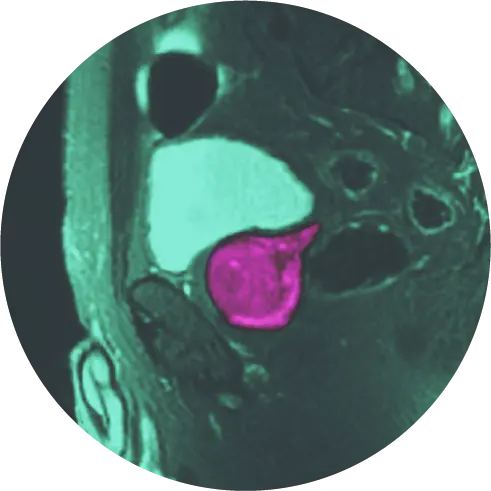Each September, we celebrate Prostate Cancer Awareness Month, but helping others learn about this difficult disease – and ways to reduce your risk of developing it – matters year-round.
Each year, doctors diagnose 190,000 new cases of prostate cancer. At the same time, 33,000 men die annually from this disease. That’s why finding treatments that are effective, minimally invasive, and have fewer side effects matters.
At HALO Diagnostics, we offer two alternatives to traditional, more invasive procedures: laser focal therapy (also called focal laser ablation) and transurethral ultrasound ablation (also called TULSA-PRO).
These treatments provide key advantages, including rapid recovery time, improved urination, and improved accuracy, to name a few. But that’s not all: Focal laser ablation shows a 100% prostate cancer-specific survival rate after 5 years.
Some of our patients – physicians, music enthusiasts, family men – have agreed to share their experiences to spread awareness about prostate cancer and the options for treating it.
Let’s hear from them firsthand.
Dr. Terry Higgins
Dr. Terry Higgins, MD, FACS, is a practicing board-certified plastic surgeon. He lives in Las Vegas, Nevada, with his wife of 30 years and their four children.
After receiving a prostate cancer diagnosis, Higgins’ urologist warned him of the risk of side effects of traditional procedures like a radical prostatectomy, which carries a 50% chance of causing erectile dysfunction and a 25% chance of causing incontinence.
At just 53 years old, those were odds that Dr. Higgins wasn’t willing to accept. His urologist then told him about laser focal therapy, a minimally invasive prostate cancer treatment pioneered by HALO Diagnostics.
Now a few years in remission, Dr. Higgins shares his story.
Dr. David Mantik
Dr. David Mantik is a radiation oncologist. For more than 40 years, he’s specialized in the use of radiation therapy to treat patients with prostate cancer.
At the age of 79, Dr. Mantik’s prostate-specific antigen (PSA) score was steadily rising. He visited HALO Diagnostics’ Chief Medical Officer Dr. John Feller for a prostate MRI, which showed some abnormalities. Dr. Feller then performed an MRI-guided prostate biopsy on Dr. Mantik.
Dr. Mantik soon learned he had an aggressive form of prostate cancer.
“Surgery was never an option for me because I had seen so many patients post-operatively,” says Dr. Mantik. “I knew that I didn’t want any of those side effects. So that further convinced me that laser therapy was the way for me to go.”
Wayne Gregory
Family, safety, and quality of life were top of mind for Wayne Gregory when he chose laser focal therapy to treat his prostate cancer.
“When you get the diagnosis of cancer, it’s like you get hit with a ton of bricks. That was just one of those things that overwhelmed me.”
He visited several doctors – and they all recommended chemo, radiation, and a radical prostatectomy.
“I could not accept that a radical prostatectomy was all that was out there.”
It was in Houston, Texas, in Dr. Ara Karamanian’s office that Gregory says he discovered the treatment for him: laser focal therapy.
Today, Gregory has no side effects from the procedure – a positive outcome, he says, not just for him, but his entire family.
Tom Lowell
Tom Lowell was diagnosed with prostate cancer in 2016 at 64 years old.
He was active and ran a bustling music business – and illness was the last thing on his mind. Lowell says he only got screened to support a friend. With no symptoms and no family history of prostate cancer, he never expected to be the one receiving bad news.
Lowell’s longtime urologist told him that a radical prostatectomy, or surgical removal of the prostate gland, was the best treatment option for his localized prostate cancer. His search for a minimally invasive procedure led him to MRI-guided laser focal therapy at HALO Diagnostics in Indian Wells, California.
Tom’s prostate cancer remains in remission today, and he reports that his quality of life has never been better.
Contact Us
HALO Diagnostics is here to help you take control of your prostate health. To learn more about our treatment options, request a consultation online.




